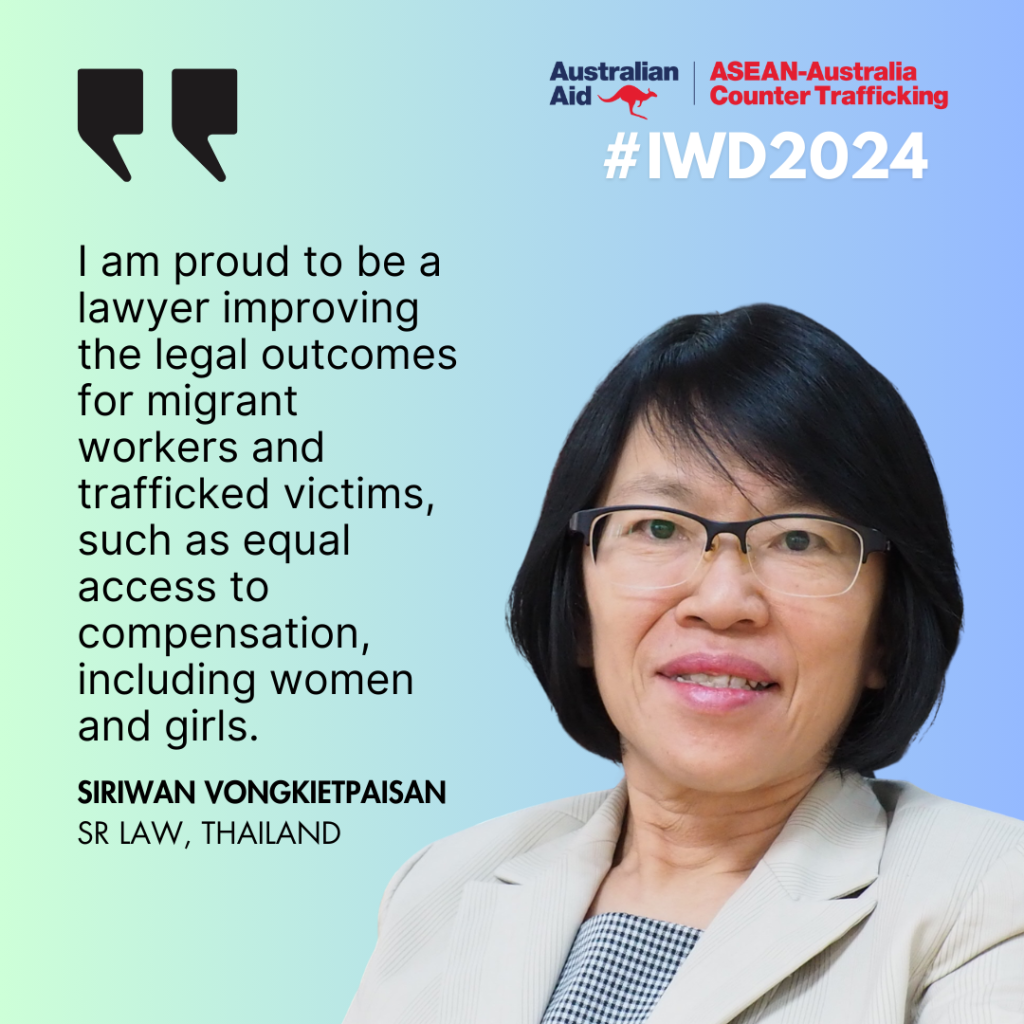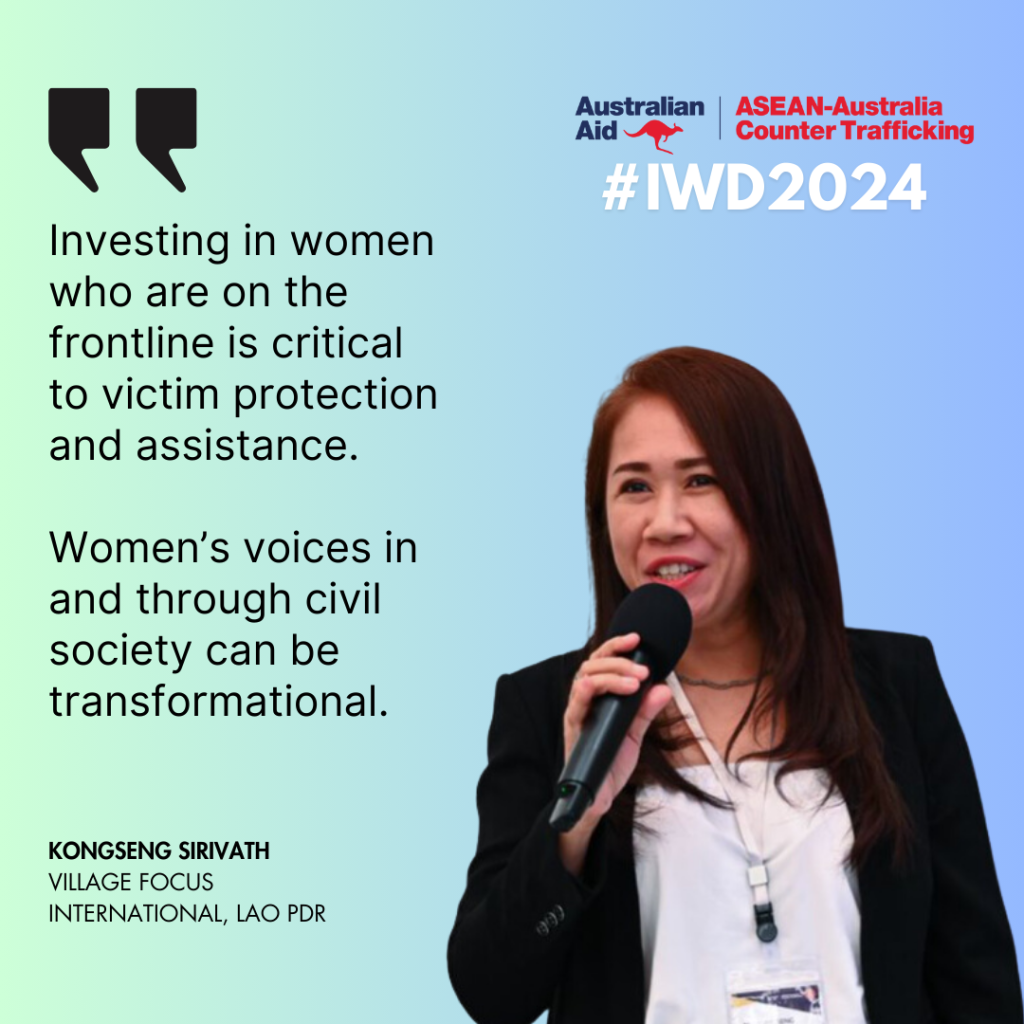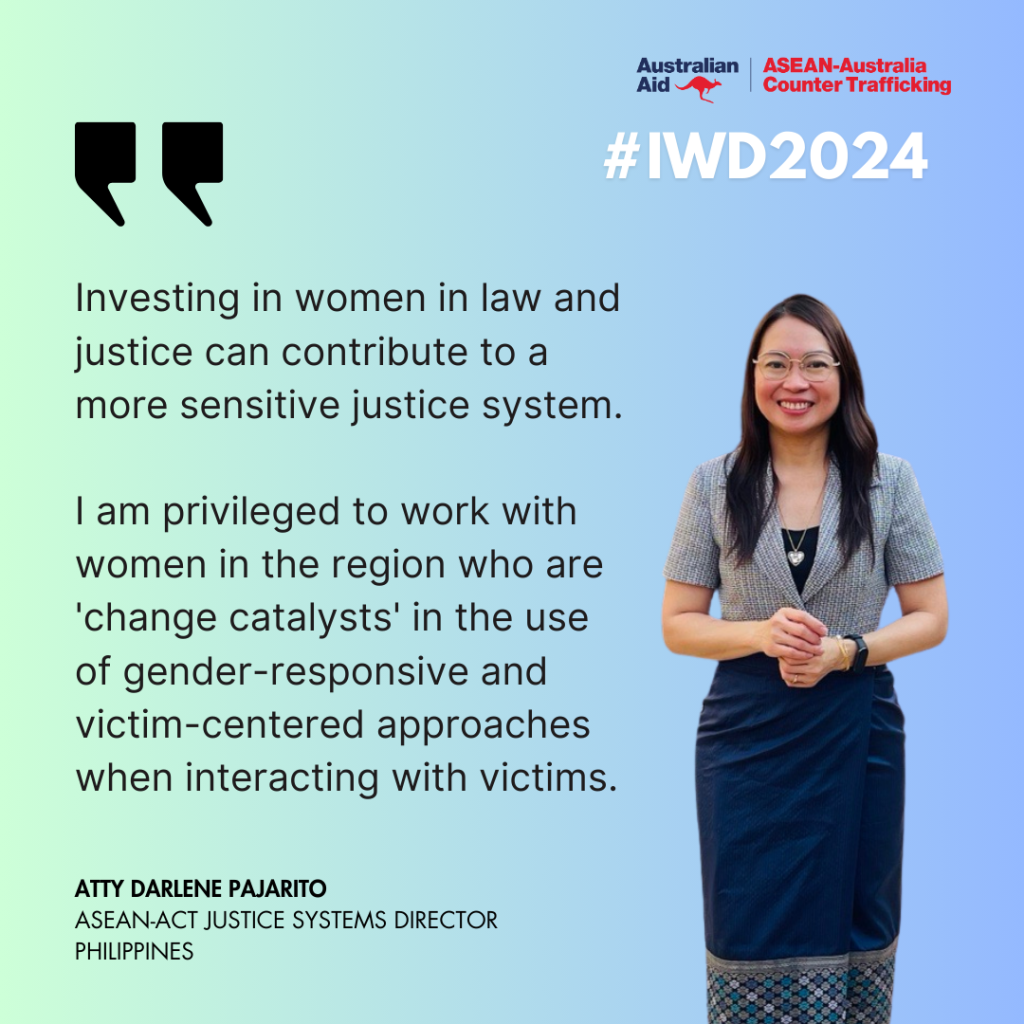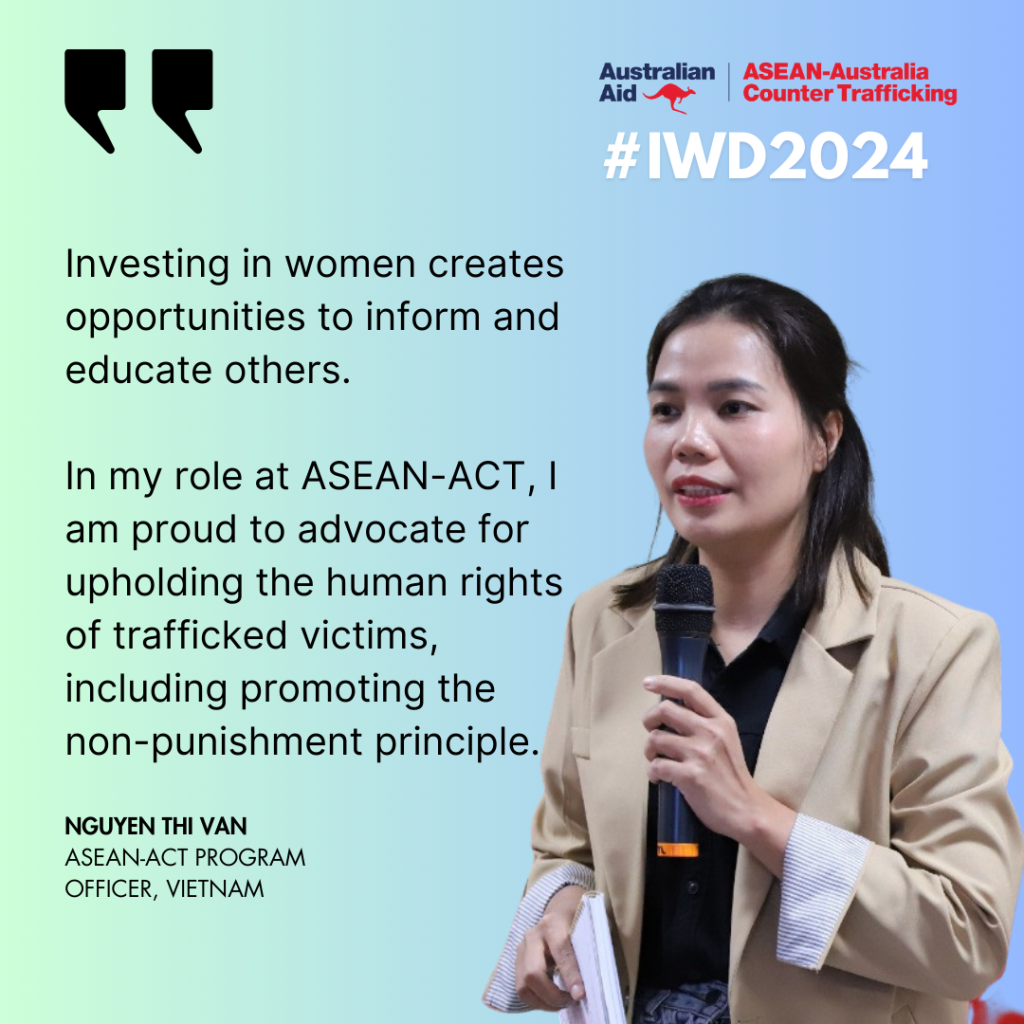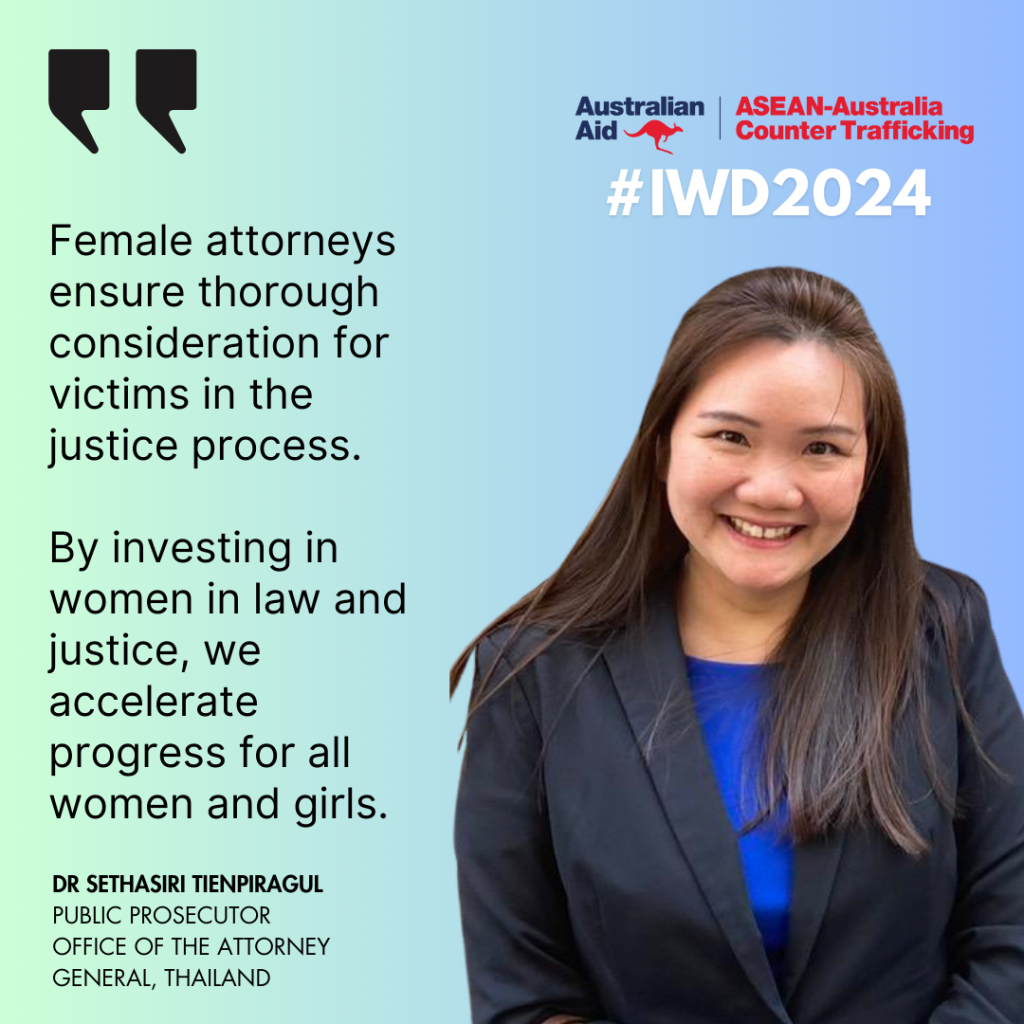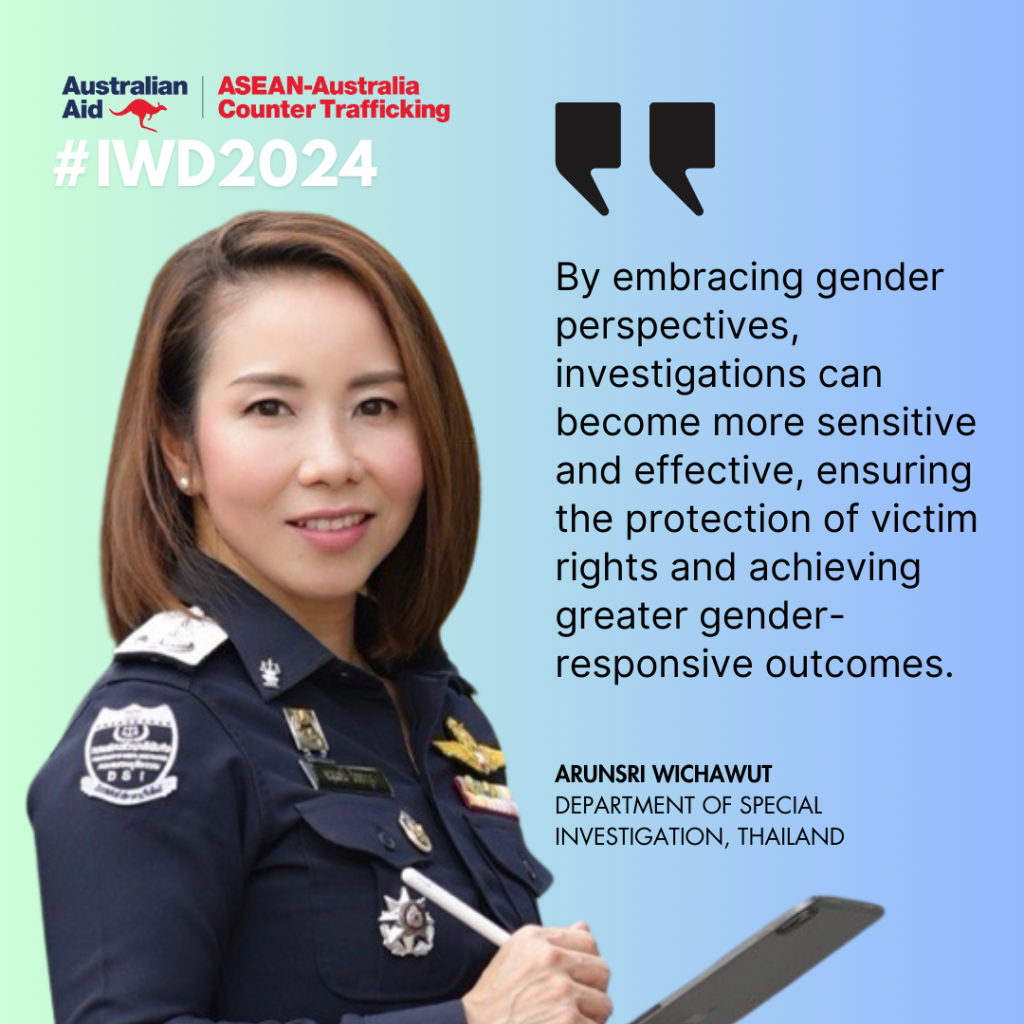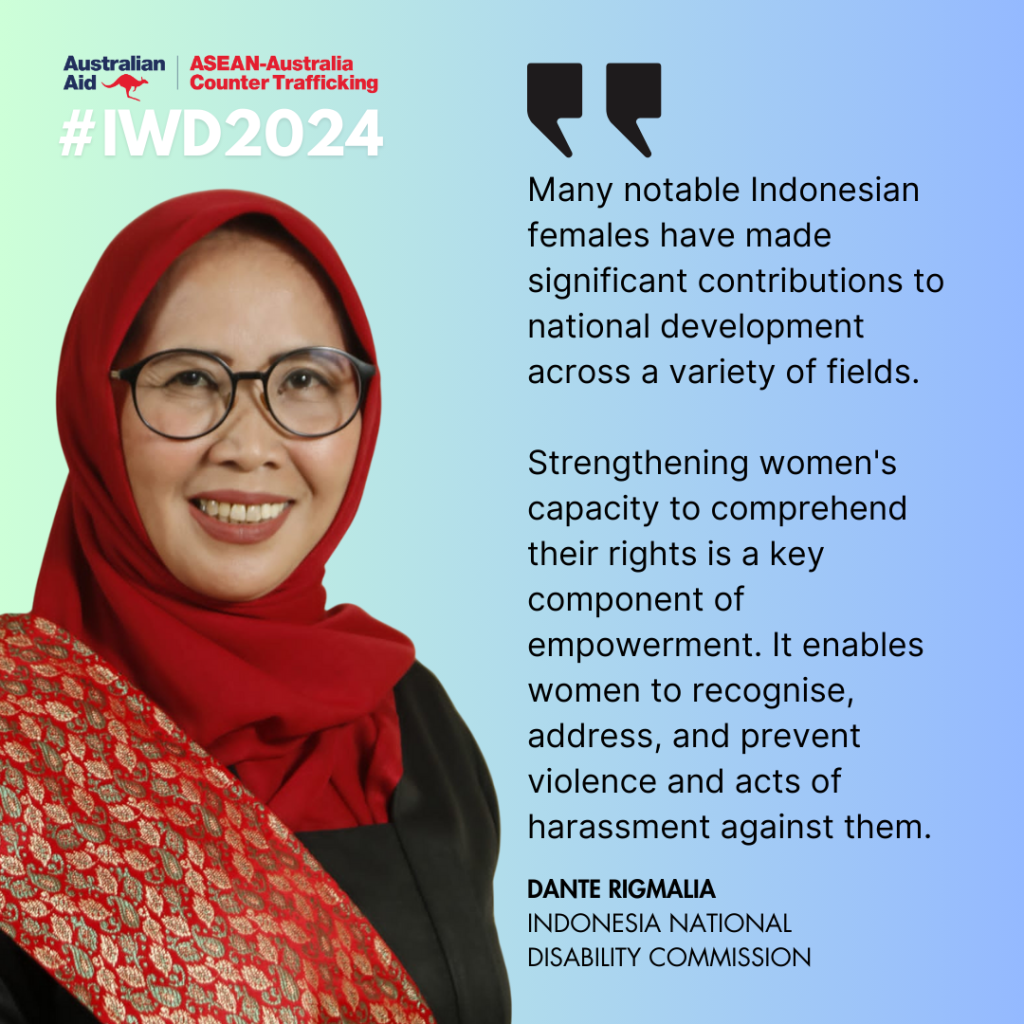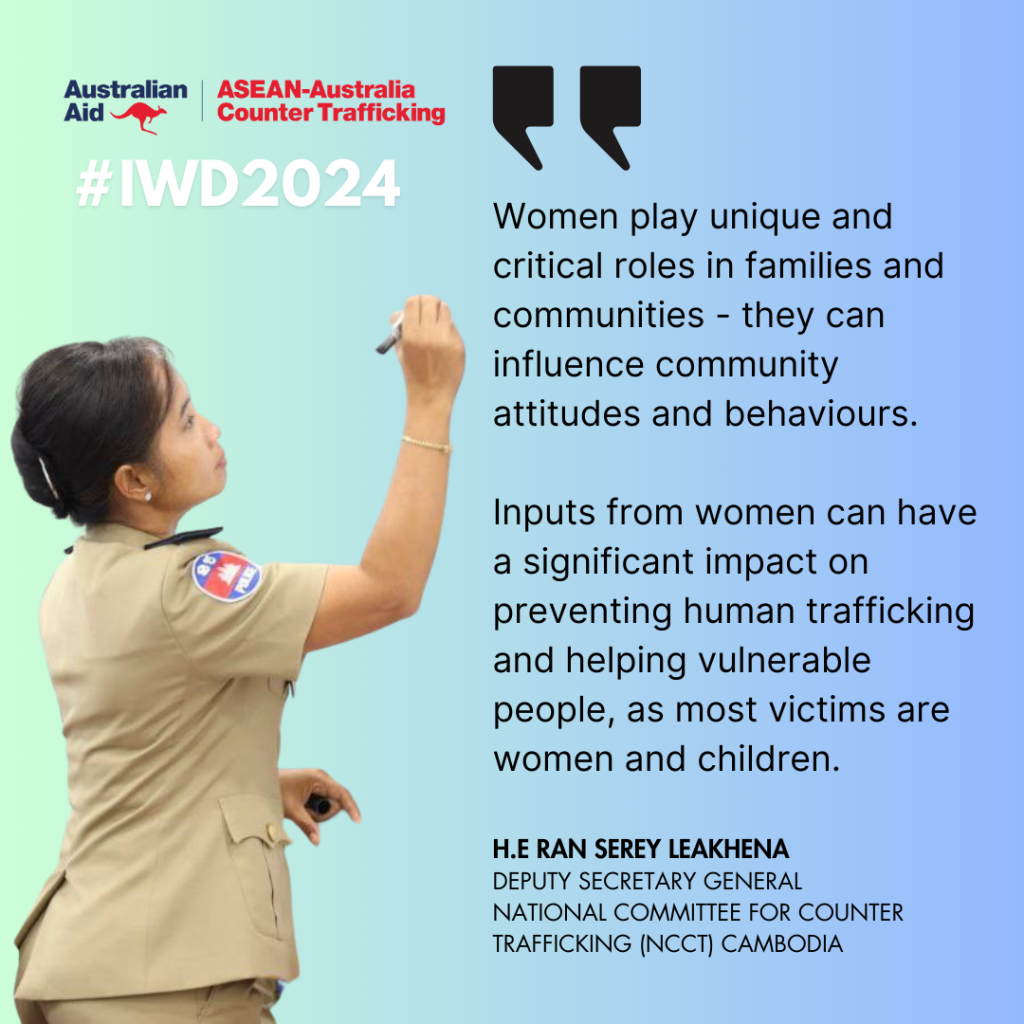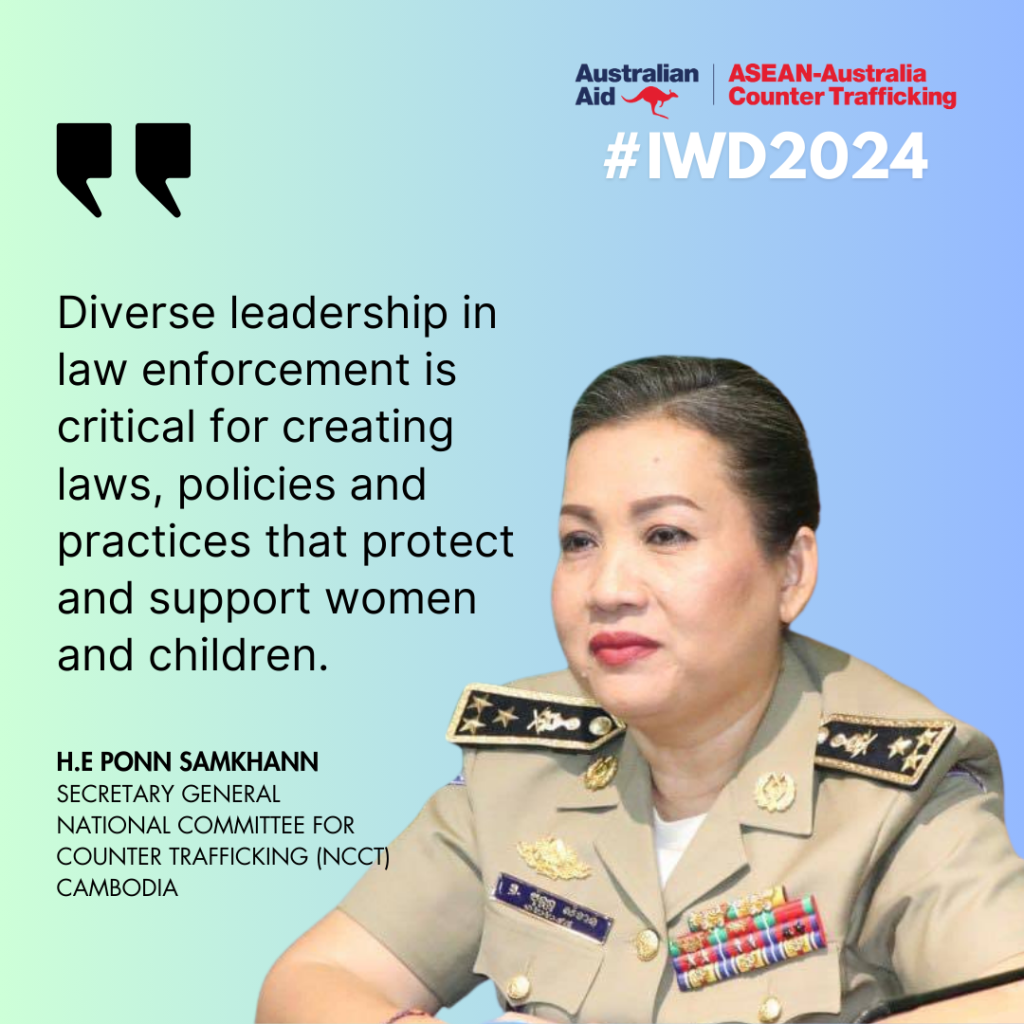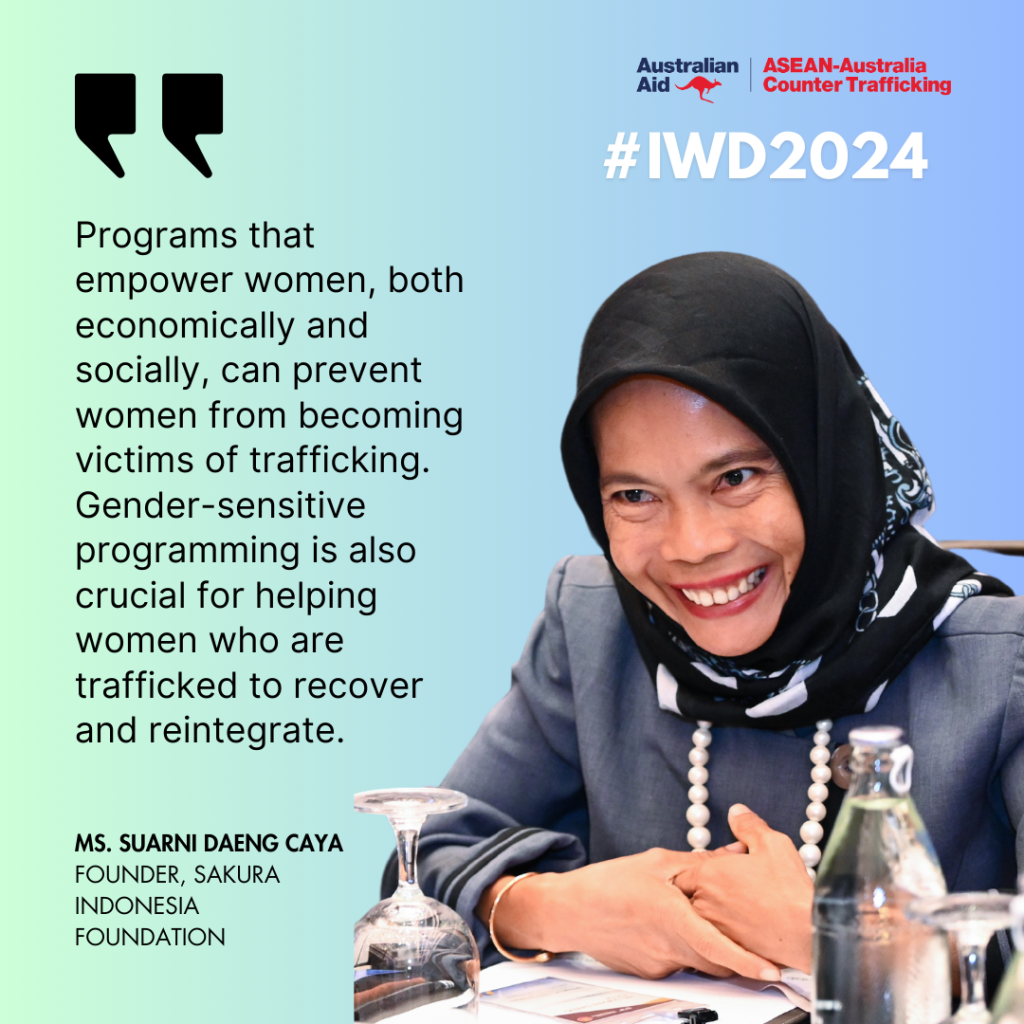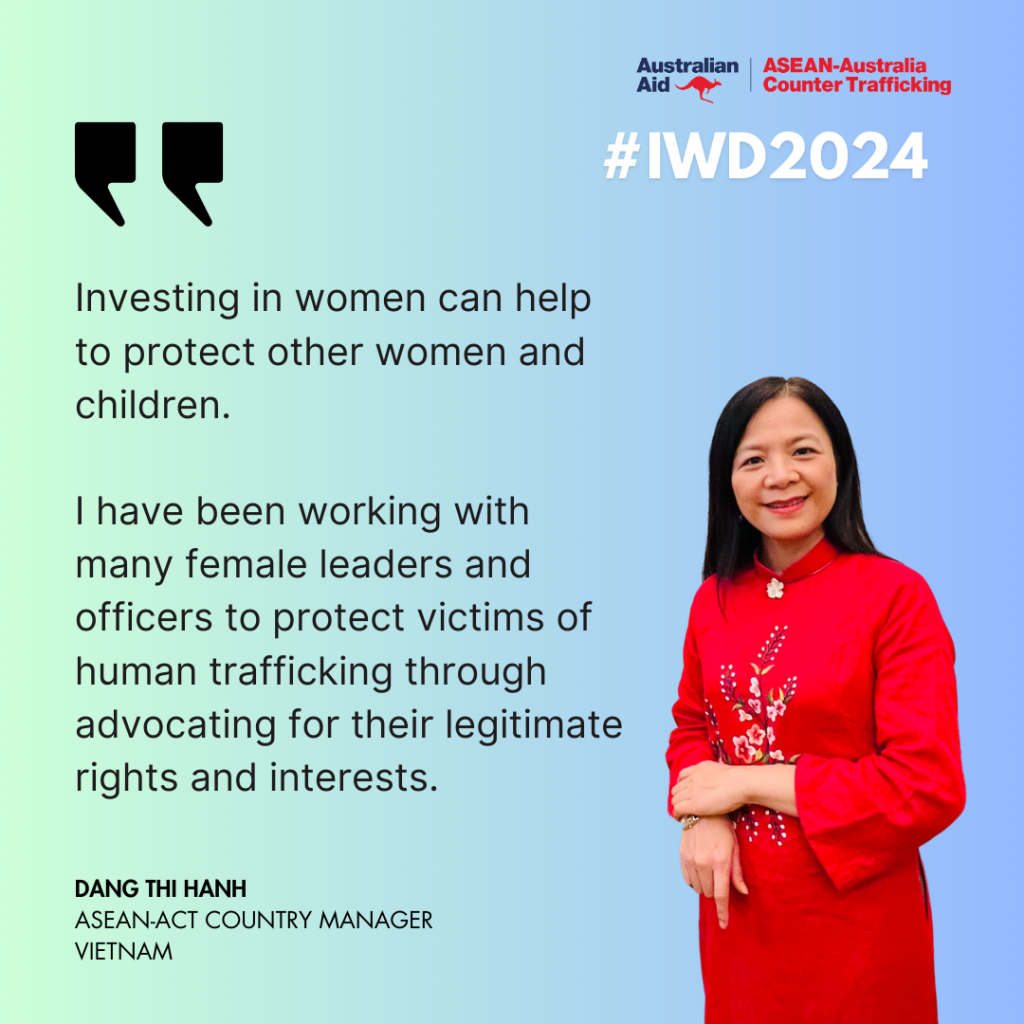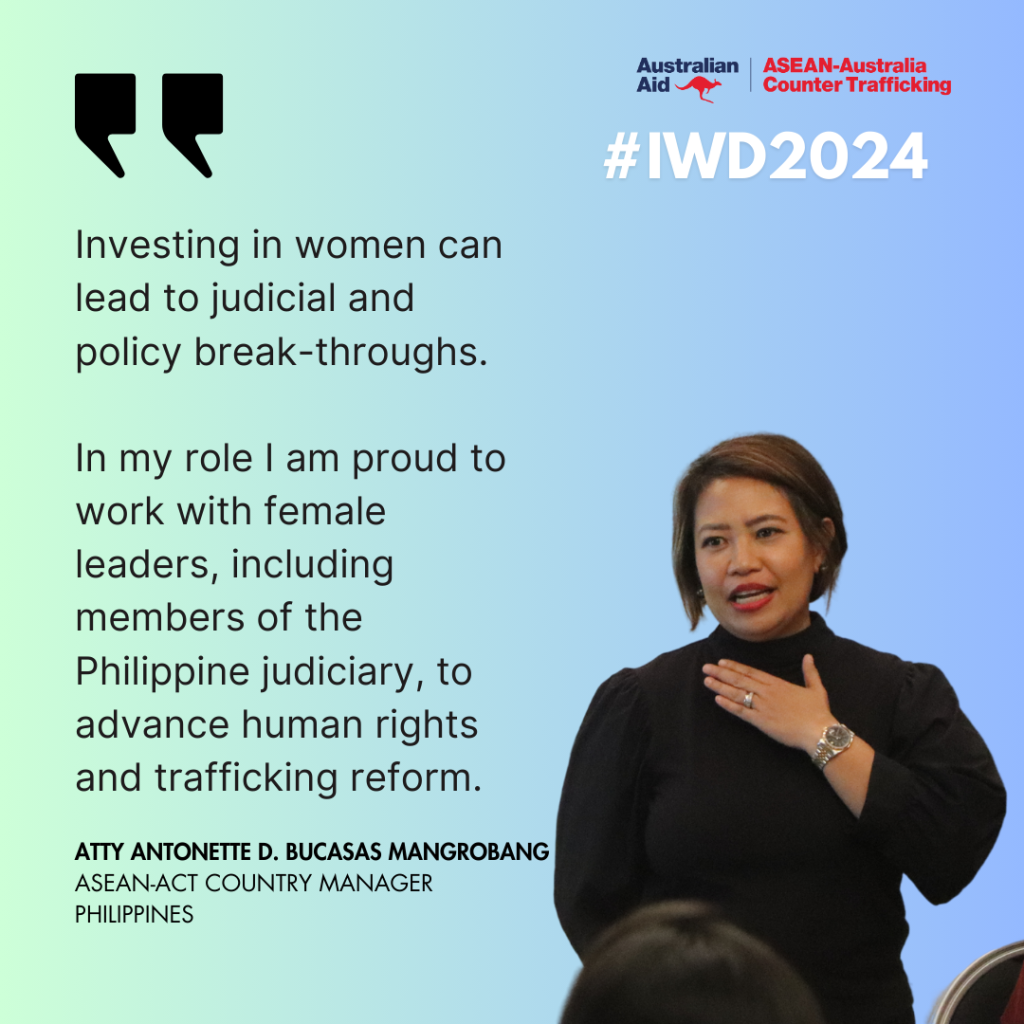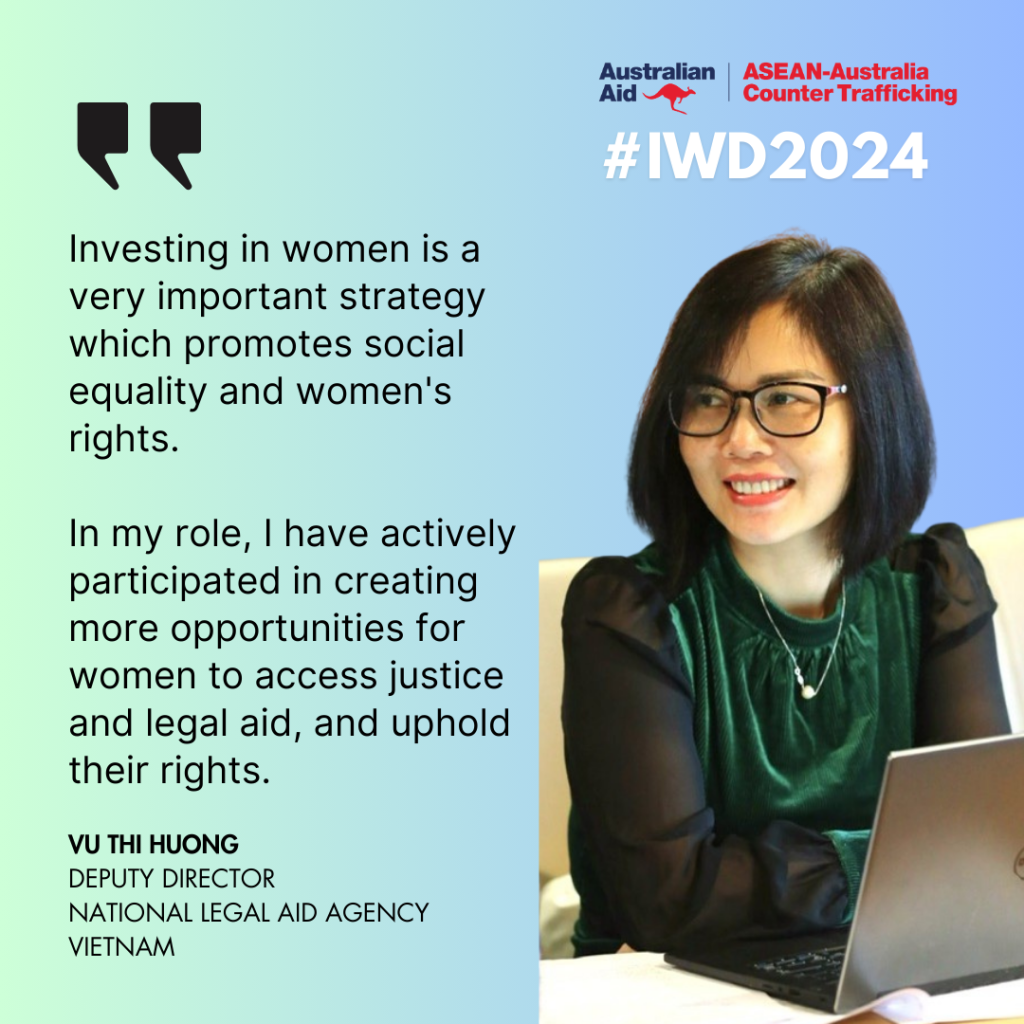Women and girls are disproportionately vulnerable to human trafficking with over 70% of the 50 million people living in conditions of modern slavery estimated to be female. It is well known that women are more vulnerable to be deceived in to forced marriage and sexual exploitation, yet the vulnerabilities of women to exploitation in other sectors, such as factories and farms is not so well understood or addressed.
Human trafficking is a gendered phenomenon with women, men, girls and boys vulnerable to different forms of exploitation and abuse. With women and girls being overrepresented in the care economy, they are more likely to become victims of exploitation and abuse in domestic settings. Men and boys, however, are more likely to find themselves in situations of forced labour in the fishing and construction sectors. Women are also vulnerable to trafficking into online scams, and through such patterns have been found to then be further trafficked into sexual exploitation.
Understanding the complex gendered dimensions of human trafficking, including how gender and social norms, patriarchy, and gender-based discrimination shape experiences of exploitation is key to effective counter trafficking. This includes not only addressing the factors that make women and girls more vulnerable to trafficking in persons, such as the lack of education and employment opportunities, but also investing in women as leaders and change-agents in the fight against trafficking.
Yet women also have key roles to play in counter trafficking, including in preventing and responding to trafficking, and supporting more inclusive policies and practices that respond to the diverse needs of victim-survivors of trafficking.
Women victim-survivors of trafficking are integral to the solutions. Indonesia’s Maizidah Salas has drawn from her lived experiences of human trafficking and established the Indonesian Migrant Workers’ Union to provide assistance to victim-survivors, advocate on policy and awareness raising, including producing films with real plots to inform the general public about human trafficking. Mazidah’s work shows how female victim-survivors across the region can become leaders themselves in counter-trafficking.
Women are critical on the frontline. Often victim-survivors feel more comfortable seeking assistance from a person of the same gender, particularly if they have experienced sexual or gender-based violence. Female frontliners – police, social workers, shelter staff, health workers – are usually the first point of contact for a potential victim-survivor of trafficking. They can be instrumental in identifying and referring a victim-survivor to justice and other services critical for their recovery and reintegration.
A study on women in law enforcement in ASEAN in 2020 highlighted how increased female representation, whether in leadership roles or on the frontline, can lead to tangible improvements such as facilitating more effective investigations that prioritise the needs of women and girls.
The study demonstrates how the whole community benefits when we invest in women as leaders and change-makers. While women’s representation in law enforcement in ASEAN is improving, female officers still come up against gender stereotypes and fixed conceptions of what ‘good’ leadership looks like. The study found that women who were able to occupy senior positions in law enforcement often depended on advocacy from a male colleague. The fact that there is yet to be a female chief of police in the ASEAN region highlights that gender parity in law enforcement is still to be achieved.
Women lead judicial and policy break throughs. As a traditionally male-dominated field, women prosecutors, judges and lawyers are challenging gender biases in the judiciary and helping to make justice services fairer and more accessible for all.
There are also many examples in the ASEAN region of women spearheading counter-trafficking reform and influencing legislation. For example, Thailand’s Siriwan Vongkietpaisan, Director of SR Law, has successfully led advocacy for policy changes, based on case analysis, that has resulted in irregular migrants gaining access to compensation when they are victims of crimes such as human trafficking – access that had been previously denied.
These are just some examples of the progress that can be achieved when we invest in women as leaders and change-agents in the fight against trafficking. On International Women’s Day (8 March) we reflect on the roles of women in preventing and responding to trafficking in persons and their contribution to a safer and more equitable society for all.
—
The UN observes International Women’s Day on March 8 each year. This article celebrates the 2024 theme “Invest in women: accelerate progress”.
#InvestInWomen #GenderEquality #InclusivityMatters #EndHumanTrafficking #IWD2024
—
